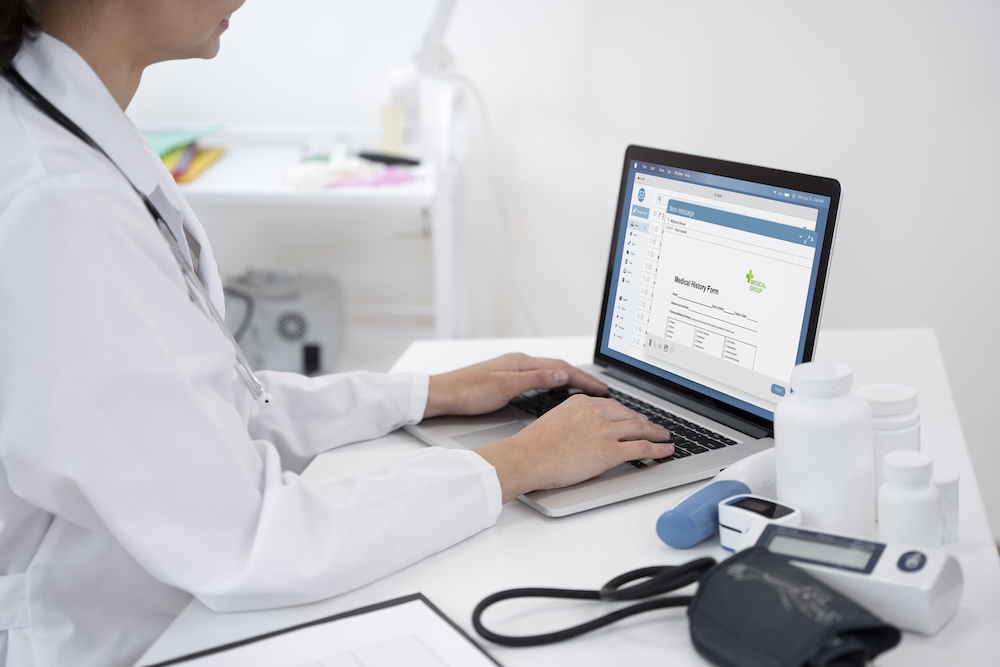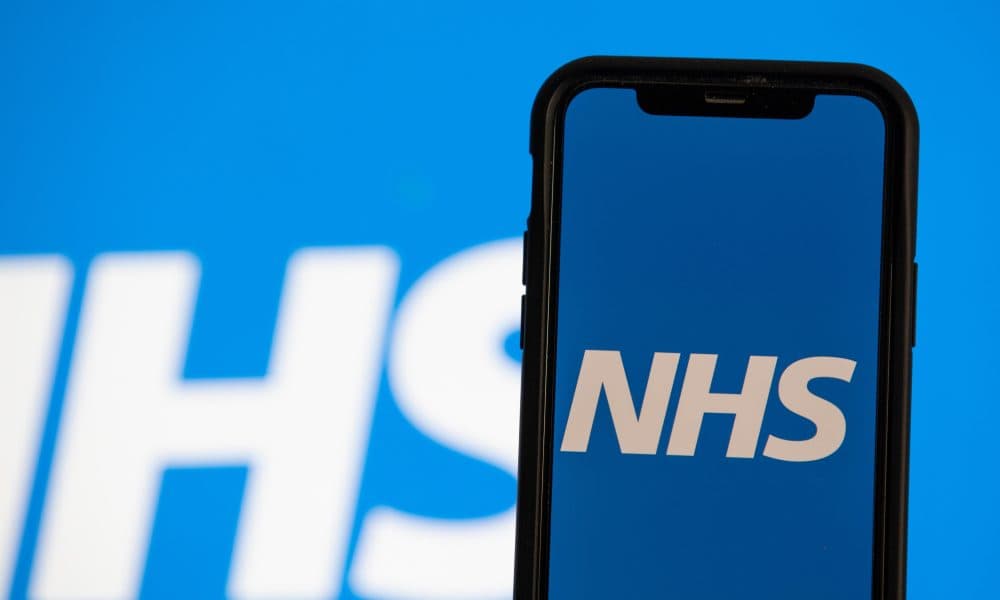Boosting patient care and security with an SSO/AM solution

George A. Gellert MD, MPH, MPA, is an epidemiologist focused on using information technology to improve public health outcomes.
In this article he discusses the findings from his recent research collaboration with Imprivata, just published in the peer reviewed journal Advances in Health Information Science and Practice (AHISP), the official journal of the American Health Information Management Association (AHIMA), on the impact and value of single sign-on and access management in hospitals in the UK and Ireland.
As well as demonstrating a positive impact on care delivery and financial performance, using an SSO/AM solution directly supports the technology focus and vision outlined in the NHS 10-year plan.
Technology in healthcare today
Over the last 15 years the electronic patient record (EPR) has been widely adopted by healthcare organisations in the UK, as well as the US and Europe.
Standardising evidence-based clinical care data in patient records with computers, often referred to as Computerised Patient Order Entry, or CPOE, has improved the quality of care by reducing errors and subsequent patient risk from harm and preventable morbidity/mortality.
However, many clinicians regard EPRs as time-consuming interruptions to their busy work practices, disruptive to patient care, and as a source of stress, fatigue and burnout.
This view is exacerbated by security measures that have been put in place to protect health data, with mandatory passwords that comply with statutory data protection and audit requirements.
With clinicians sometimes needing to access up to twenty clinical applications this leads to multiple passwords.
The result? Manual login processes, password fatigue, and frequent authentication interruptions that not only delay care but also open doors to privacy risks and workarounds.
Indeed, the Darzi Report published in November 2024, noted that there is a strong perception among NHS staff that IT creates an additional burden.
“It always seems to add to the workload of clinicians rather than releasing more time to care by simplifying the inevitable administrative tasks that arise,” Lord Darzi stated.
Balancing robust data security with clinical efficiency
It is evident that robust security measures need to be in place if we are to increase the use of technology within healthcare.
However, this needs to be achieved without disrupting care delivery.
Research from my recently published peer-reviewed study has demonstrated that implementing a single sign-on and access management (SSO/AM) solution smooths and accelerates workflows for clinicians accessing the EPR and clinical applications, enhancing cybersecurity best practice and privacy compliance, while freeing up and returning time previously spent by clinicians typing on a keyboard to focus instead on patient care.
SSO/AM not only improved overall enterprise health information security, it also saved substantial clinician time.
Backed up by research

George Gellert
The study was conducted between 2018 and 2024 across 55 urban hospitals in the UK (public sector) and Ireland (two with private funding/management).
It covered the breadth of healthcare on offer – six hospitals were general facilities with the usual range of specialty services and two were specialty hospitals.
It was also the first non-US study and largest multinational analysis to evaluate the clinical workflow impact and financial value of SSO/AM implementation in the United Kingdom and Republic of Ireland.
At most hospitals, measurements were completed on workstations in general medicine wards, medical assessment units, paediatric emergency departments and neonatal intensive care units.
The selection was determined by the leadership teams based upon need, high patient volume and frequency of clinician logins.
A time/motion study was conducted by a nurse informaticist and an engineer using a stopwatch to directly measure the time clinicians required to log in to workstations, computer desktops, and applications.
Clinician login duration was measured pre– and post SSO/AM implementation.
Login frequency, user-switching events and access workarounds used by clinicians were recorded.
Enhancing security and clinical tasks
The results demonstrated that using SSO/AM, Imprivata’s Enterprise Access Management (EAM) solution, directly enhanced both security and care related tasks, enabling clinicians to focus on patient care, not authentication processes.
Streamlined access and stronger security
We found that clinicians experienced a 60 per cent reduction in desktop login time and over 50 per cent faster application access after the solution deployment.
These improvements came without sacrificing security, thanks to two-factor authentication and smartcard integrations with the NHS Spine.
No more workarounds
While previously clinicians often relied on shared logins or avoiding logouts to stay productive, the solution eliminated clinician need for workarounds, and delivered fast, secure and auditable access.
Session integrity was also assured with automatic locking and reauthentication.
Resilience across workflows
By deploying the SSO/AM solution on both multi-user desktop (MUD) and kiosk models, it supported multiple clinical workflows, from A&Es (EDs) and NICUs to clinician offices, without disrupting IT security governance or the user experience.
The user experience for clinicians became far more frictionless.
Improving throughput and supporting clinical workforce satisfaction
The study collected quantifiable data which demonstrated that deploying an SSO/AM solution improves workflows and frees up time for clinicians to focus on patient care.
Specifically, the research showed that 3.3 million clinician hours were redirected annually from logging-in to patient care – equivalent to over 278,000 clinician shifts of 12 hours duration across the 55 participating hospitals.
While the solution is not focused on cost-cutting, this reclaimed time can help to improve patient throughput, staff satisfaction, use of resources, and patient care.
On average, each hospital gained nearly £1 million/year in the value of freed clinician time, demonstrating a substantial return on investment.
What’s next? The NHS 10-year plan
To understand the national implications of the study findings, an economic impact model was developed for the 307 additional hospitals across the UK and Ireland that were eligible for SSO/AM by virtue of size, having an EPR, substantial clinician facility roaming, and other factors.
Full-scale usage of an SSO/AM solution such as Imprivata’s across the UK and Ireland could annually free up over 71 million hours of clinician time from keyboard typing to instead focus on patient care.
This is equivalent to 5.9 million 12-hour shifts, valued at an estimated £1.1 billion/year in clinician time and system productivity.
For the budget-constrained NHS, struggling to perform under increasing financial pressures, SSO/AM offers an opportunity to dramatically increase national and system wide clinical productivity, efficiency and cost-effectiveness.
The findings also align directly with the NHS 10-year Plan emphasis on increasing digitally enabled care, operational efficiency, and workforce sustainability.
By demonstrating how SSO/AM can securely streamline and accelerate clinical access workflows, reduce login-related delays and time consumption, and return millions of clinician hours to patient care, the study offers a tangible and proven strategy for achieving the Plan’s goals.
A clear way forward
Deployment of an SSO/AM solution offers considerably greater impact and value than just an expedited login method – it is a cornerstone of secure, efficient, and clinician-friendly digital care.
SSO/AM mitigates privacy risk, accelerates access to critical systems, facilitates increased patient throughput and quietly returns time to the frontline of patient care delivery.
For health systems seeking to advance clinician workflows, enterprise cybersecurity and operational/financial efficiencies, the technology offers a high-impact, robust and proven path forward.
A full copy of the research paper: ‘Clinician Time Savings and Financial Value of Workstation Single Sign-On and Access Management in the United Kingdom and Ireland’ can be downloaded here.
About Dr Gellert
Dr George Gellert collaborates with Imprivata as an independent medical advisor to evaluate the impact and value of its technology solutions.
Dr Gellert has served as Chief Medical Information Officer of CHRISTUS Health, and worked in industry (GlaxoSmithKline, WebMD), international health (Project HOPE and the United Nations), and government (Los Angeles and Orange County Health Departments).
Dr Gellert serves as a peer reviewer for 45 biomedical, public health, and health IT journals, and has authored over 190 largely first authored peer reviewed journal and book publications.









